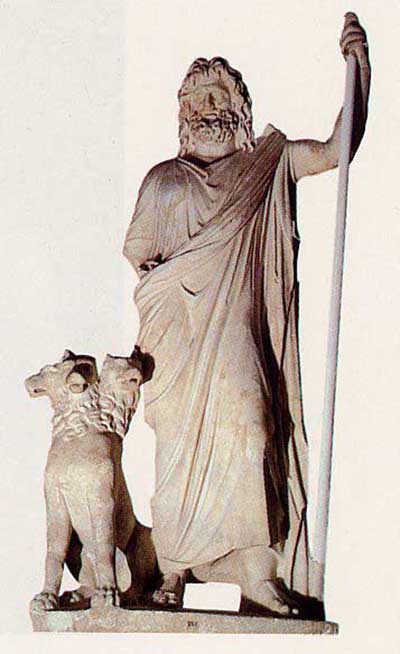Hades Roman Name

The Greek God Hades, Lord of the Underworld The Greeks called him the Unseen One, the Wealthy One, Pluoton, and Dis. But few considered the god Hades lightly enough to call him by his name.
Question: 'What is the difference between Sheol, Hades, Hell, the lake of fire, Paradise, and Abraham’s bosom?' Answer:The different terms used in the Bible for heaven and hell—sheol, hades, gehenna, paradise, and —are the subject of much debate and can be confusing.The word paradise is used as a synonym for heaven (2 Corinthians 12:3–4; Revelation 2:7). When Jesus was dying on the cross and one of the thieves being crucified with Him asked Him for mercy, Jesus replied, “I tell you the truth, today you will be with me in paradise” (Luke 23:43). Jesus knew that His death was imminent and that He would soon be in heaven with His Father.
Please report comments that you think violate this rule and we will evaluate them.)8: Criticism of Game Grumps in good spirit is allowed. People should not be attacked for voicing their opinion about the channel, whether it's positive or not.9: Please keep discussions from or in their own subreddits, thank you.10: Low Quality/Low Effort memes and other threads are subject to be removed without warning. You can be constructive without being toxic. Endless frank ocean songs.
Therefore, Jesus used paradise as a synonym for heaven, and the word has come to be associated with any place of ideal loveliness and delight.Abraham’s bosom is referred to only once in the Bible—in the story of Lazarus and the rich man (Luke 16:19–31). Abraham’s bosom was used in the Talmud as a synonym for heaven. The image in the story is of Lazarus reclining at a table leaning on Abraham’s breast—as John leaned on Jesus’ breast at the Last Supper—at the heavenly banquet. The point of the story is that wicked men will see the righteous in a happy state, while they themselves are in torment, and that a “great gulf” that can never be spanned exists between them (Luke 16:26). Abraham’s bosom is obviously a place of peace, rest, and joy—in other words, paradise.In the Hebrew Scriptures, the word used to describe the realm of the dead is sheol. It simply means “the place of the dead” or “the place of departed souls/spirits.” The New Testament Greek equivalent to sheol is hades, which is also a general reference to “the place of the dead.” The Greek word gehenna is used in the New Testament for “hell” and is derived from the Hebrew word hinnom.

Other Scriptures in the New Testament indicated that sheol/hades is a temporary place where souls are kept as they await the final resurrection. The souls of the righteous, at death, go directly into the presence of God—the part of sheol called “heaven,” “paradise,” or “Abraham’s bosom” (Luke 23:43; 2 Corinthians 5:8; Philippians 1:23).The lake of fire, mentioned only in Revelation 19:20 and 20:10, 14-15, is the final hell, the place of eternal punishment for all unrepentant rebels, both angelic and human (Matthew 25:41). It is described as a place of burning sulfur, and those in it experience eternal, unspeakable agony of an unrelenting nature (Luke 16:24; Mark 9:45-46). Those who have rejected Christ and are in the temporary abode of the dead in hades/sheol have the lake of fire as their final destination.But those whose names are written in the should have no fear of this terrible fate. Mechquest necryptos. By faith in Christ and His blood shed on the cross for our sins, we are destined to live eternally in the presence of God.Recommended Resource.